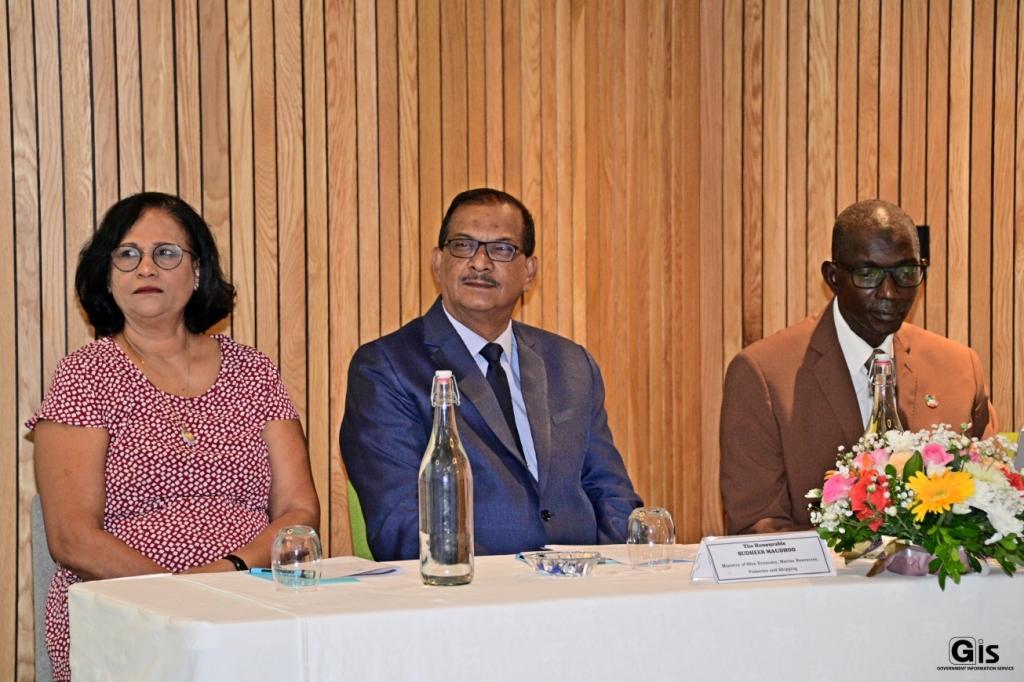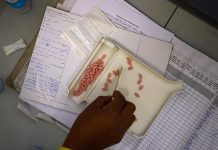Africa-Press – Mauritius. The one-and-a-half-day capacity-building training, aiming at familiarising public and private stakeholders with the development and analysis of biofouling management plans and the filling in of record books, opened, this morning, at the Caudan Arts Centre, in Port Louis.
Undertaken under the auspices of the GloFouling Partnerships Project, this workshop is a joint initiative of the Ministry of Blue Economy, Marine Resources, Fisheries, and Shipping, and the International Maritime Organisation (IMO) in close collaboration with the United Nations Development Programme and the Global Environment Facility (GEF).
The Minister of Blue Economy, Marine Resources, Fisheries, and Shipping, Mr Sudheer Maudhoo; Director of Shipping, Captain Asiva Coopen; the designated resource person of the IMO, Captain D.
Babacar; participants and among other personalities attended the launch event. In his address, Minister Maudhoo emphasised on the significance of the provision of the technical training to stakeholders involved in the operation of ship hubs.
Biofouling, he indicated, alludes to the accumulation of unwanted and in some cases, harmful invasive species, on ship surfaces, adding that this is highly likely as ships transit to other ports.
On this note, he pointed out the need to embrace best practices for improved biofouling management and for the preservation as well as protection of the endemic marine species of Mauritius. Mr Maudhoo, moreover, stressed on the espousal of a proactive approach to implement the IMO guidelines.
He further informed that the six-and-a-half-year project will benefit local stakeholders, six international environmental organisations and 60 strategic partners through numerous capacity-building activities, training workshops and opportunities for technology deployment to address the issue of invasive aquatic species, until May 2025.
The GEF, he added, is investing USD 6.9 million in this endeavour. Speaking of the propagation of the non-native marine organisms, Minister Maudhoo stated that these invasive species normally enter the Mauritian sea through ballast water discharge, vessel hubs or aquaculture activities.
If techniques are not embraced to prevent the spread, the species will have deleterious implications for vessel efficiency, fuel consumption and marine ecosystems, and by extension, the development of the country’s maritime industry.
For Mr Maudhoo, the training will endow the stakeholders with the necessary knowledge and tools to develop and analyse biofouling management plans and record books to improve the ship’s hydrodynamic performance.
This, he underscored, will, in turn, reduce fuel usage and the emissions of air pollutants and greenhouse gases, thereby, preserving the marine environment.
On his part, Mr Coopen reiterated the imperativeness of the training to gear up the stakeholders in a bid to better counter biofouling and implement the maritime conventions and protocols set in place by the IMO.
As for Mr Babacar, he linked 7% of marine invasive infestation to biofouling and underpinned the criticality yet overlooked topic of biofouling management strategies in fostering a cleaner, safer and more efficient oceanic future.
For More News And Analysis About Mauritius Follow Africa-Press







